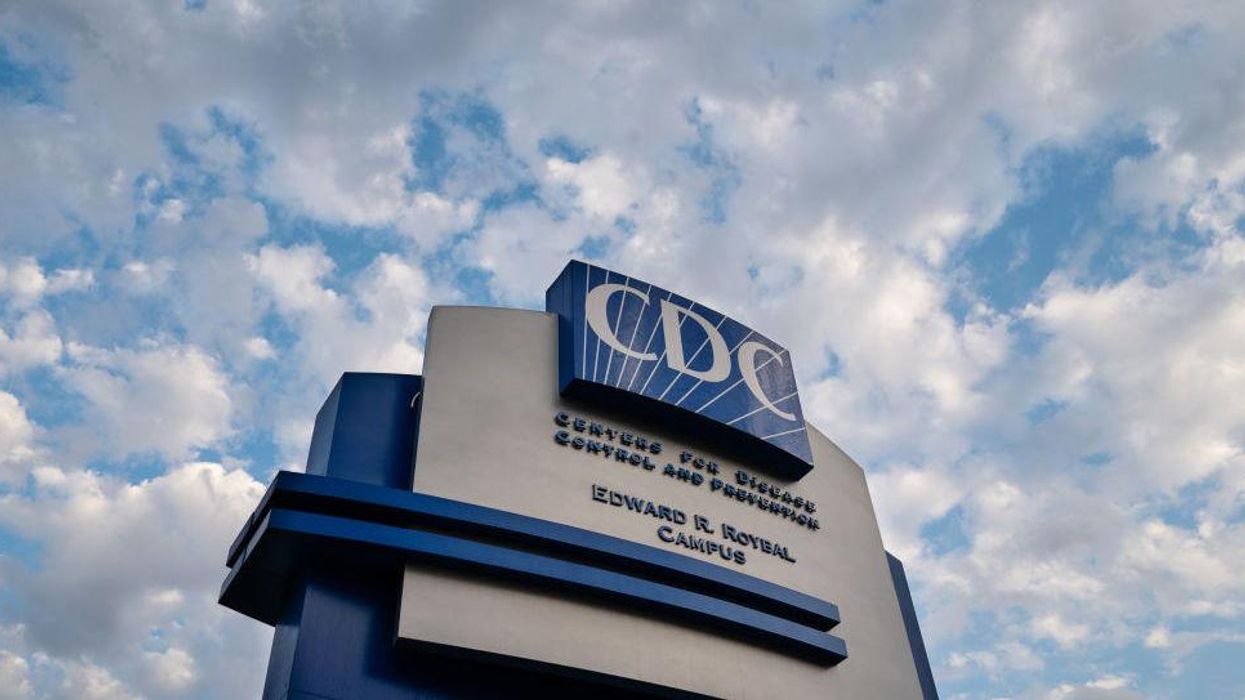
Elijah Nouvelage/Bloomberg via Getty Images

A new study conducted by the U.S. Centers for Disease Control and Prevention found that prior infection with COVID-19 offered stronger protection than vaccination against reinfection and hospitalization during the Delta variant surge last summer and fall.
The study, which analyzed data from May through November of 2021 in California and New York, was published Wednesday in the CDC's Morbidity and Mortality Weekly Report.
It found that in California, only 0.5% of unvaccinated individuals with prior infection were diagnosed with a new infection, and only 0.003% (or 378 people out of 1,370,782) were admitted to the hospital.
The figures were lower than those of vaccinated individuals without prior infection, of whom 1.5% were diagnosed with an infection and 0.007% (or 10,737 people out of 15,484,235) were hospitalized.
Similar data was produced in New York during the same time period, although New York did not produce hospitalization data.
The study also showed that a third group of individuals who were both vaccinated against the virus and had a prior infection — sometimes called "hybrid immunity" — fared the best during the Delta surge. And lastly, a fourth group consisting of unvaccinated individuals without prior infection accounted for by far the most infections and hospitalizations.
In short, the data demonstrated that both vaccination and prior infection produced immune protection against the Delta variant.
Researchers were keen to note that vaccination remains the safest way to protect oneself against health complications resulting from the virus, since infection-derived immunity carries with it some obvious risks.
“A COVID vaccination helps protect by creating an antibody response without the person having to experience severe illness and death,” Benjamin Silk, one of the study's authors and an epidemiologist at the CDC, said during a call with reporters Wednesday, according to Politico. “Vaccination provides safer protection.”
"Vaccines continue to reduce a person's risk of contracting the virus that causes COVID-19 and are highly effective at preventing severe illness," he added.
Researchers also noted that some of the data was collected at a time when vaccine immunity was fading and before booster shots became widely available.
"Importantly, infection-derived protection was greater after the highly transmissible Delta variant became predominant, coinciding with early declining of vaccine-induced immunity in many persons," the study's authors said, noting that further research was needed to determine the efficacy of vaccine boosters.
Still, for the many who have voiced support for naturally derived immunity and argued that individuals with prior infection should not be subject to vaccine mandates, the new research likely serves as vindication.
Some scientists, such as Dr. Jeffrey Klausner, a professor of medicine and public health at the University of Southern California, believe the study's findings should impact public health policies moving forward.
"No one who cares about public health is ever going to say that it's better to get infected than get vaccinated when we have a safe vaccine," Klausner told NBC News. "But in terms of policy, this supports all the clinical research and other data that suggest that immunity after infection is real, is durable."
Because of that, he said, "policy in the United States should be updated, like in many European countries, to allow for people to go to work, to go to school, if they have evidence of recovery of infection without requiring vaccination."